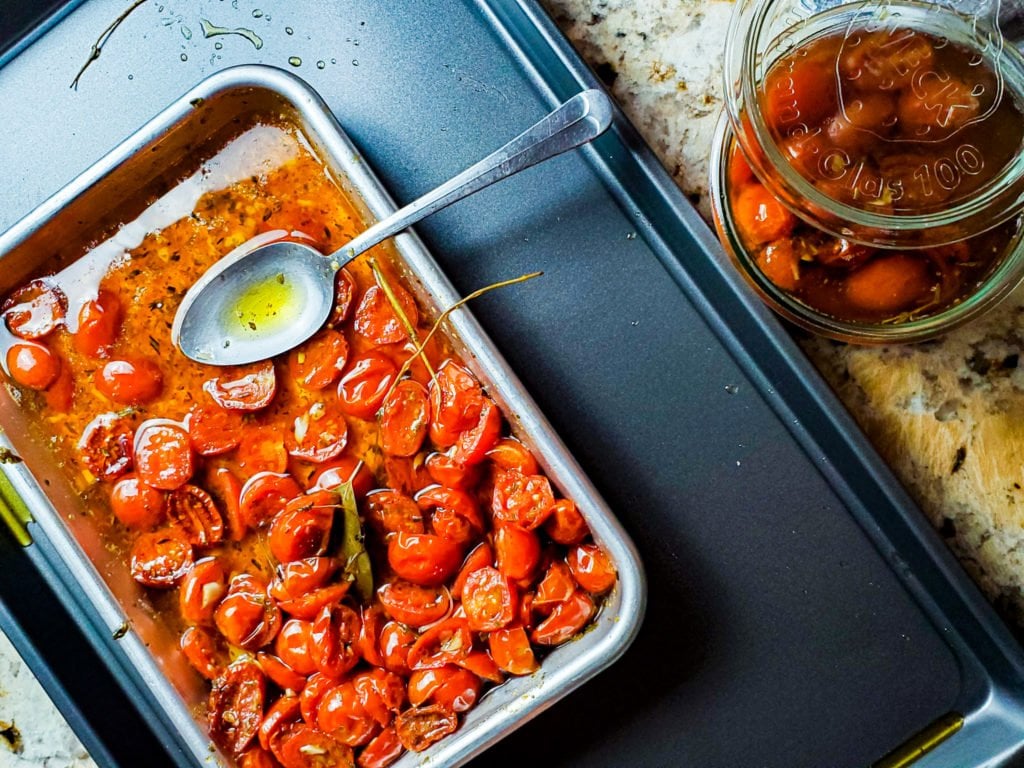
Ok so I want to make this clear off the bat: I’m NOT looking to make shelf-stable tomatoes stored in olive oil, much as I’d like to, because a.) there are no verified safe ways to do so and b.) I have seen on here in countless posts how bad of an idea that is.
That being said, I’m considering steam or pressure canning oil-marinated tomatoes anyway, not because it will make them shelf-stable, but because I’m hoping it would at least extend fridge storage life a bit, and my freezer space is pretty limited.
This is the recipe I’m targeting: [https://www.willeatthis.com/2020/09/10/easy-slow-roasted-tomato/](https://www.willeatthis.com/2020/09/10/easy-slow-roasted-tomato/)
I have two potential ideas for doing this. The first is to follow the recipe exactly, process them, and hope for the best. This method will probably store for less time but will stay most true to the taste I’m going for. The second is to drain off most of the of the oil after following the recipe and essentially pickling them, upping the pH with white/balsamic vinegar and/or lemon juice in a mixture. Wouldn’t be as accurate but could still be really good and would certainly be \~closer\~ to shelf-stable, which would maximize fridge storage life.
I could just use any insight or advice from people who’ve been processing tomatoes longer, or see if anyone’s tried to do something similar.
Thanks in advance (:
​
Bonus semi-related questions if anyone knows:
1. If there are no safe home-canning methods using oil (besides the 3 exceptions), how do manufacturing plants get away with it? So many charcuterie specialty items are stored in oil. Looking for a more thorough answer than “because they have better machinery,” please. I work in manufacturing-scale food science so I can put that together myself, but WHAT about what they do makes it that much safer?
2. How do new recipes get added to the lists of known recipes? Can home-makers submit recipes for testing or are they all exclusively formulated in test labs?
by hippopotawalrus
